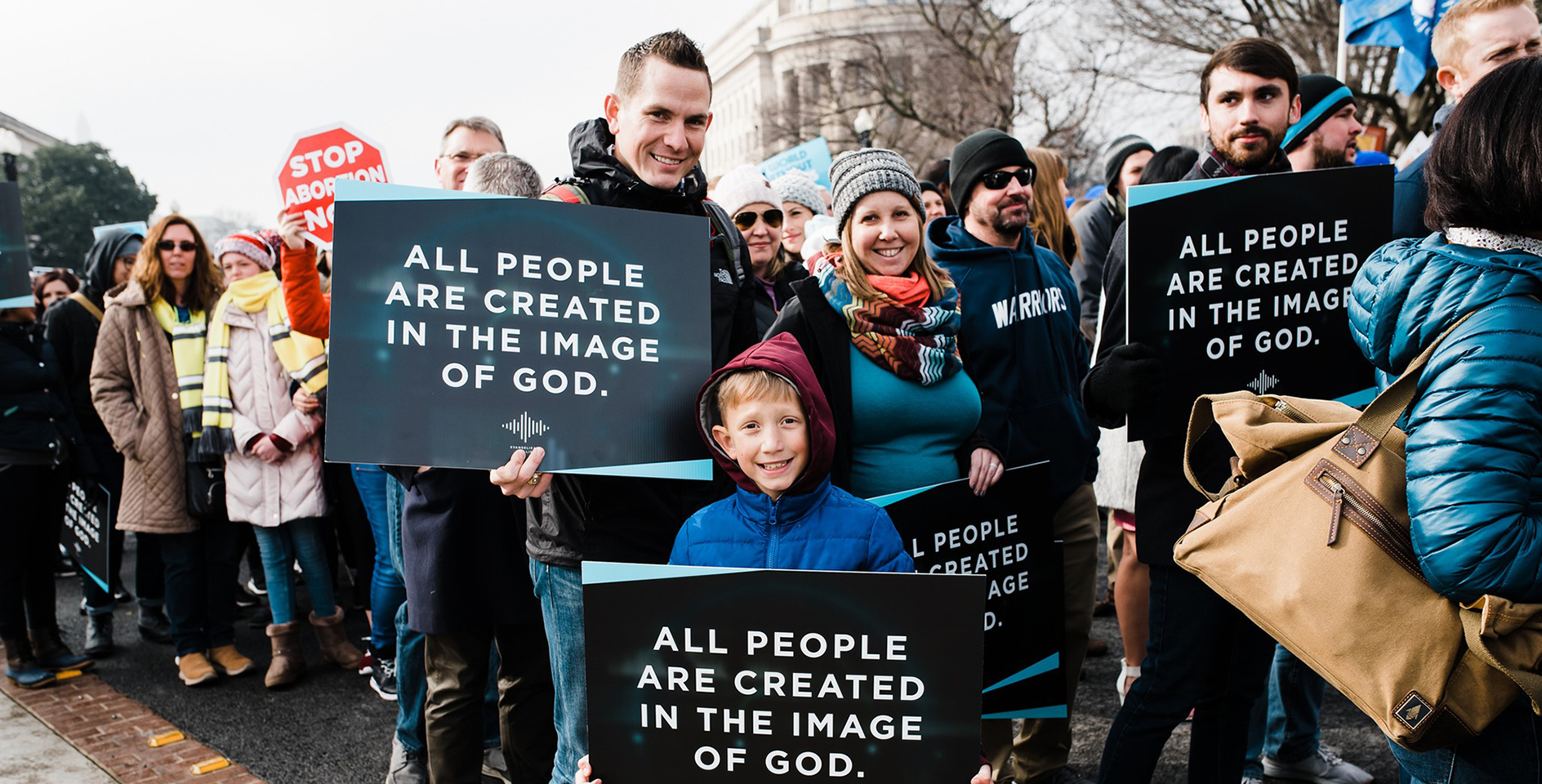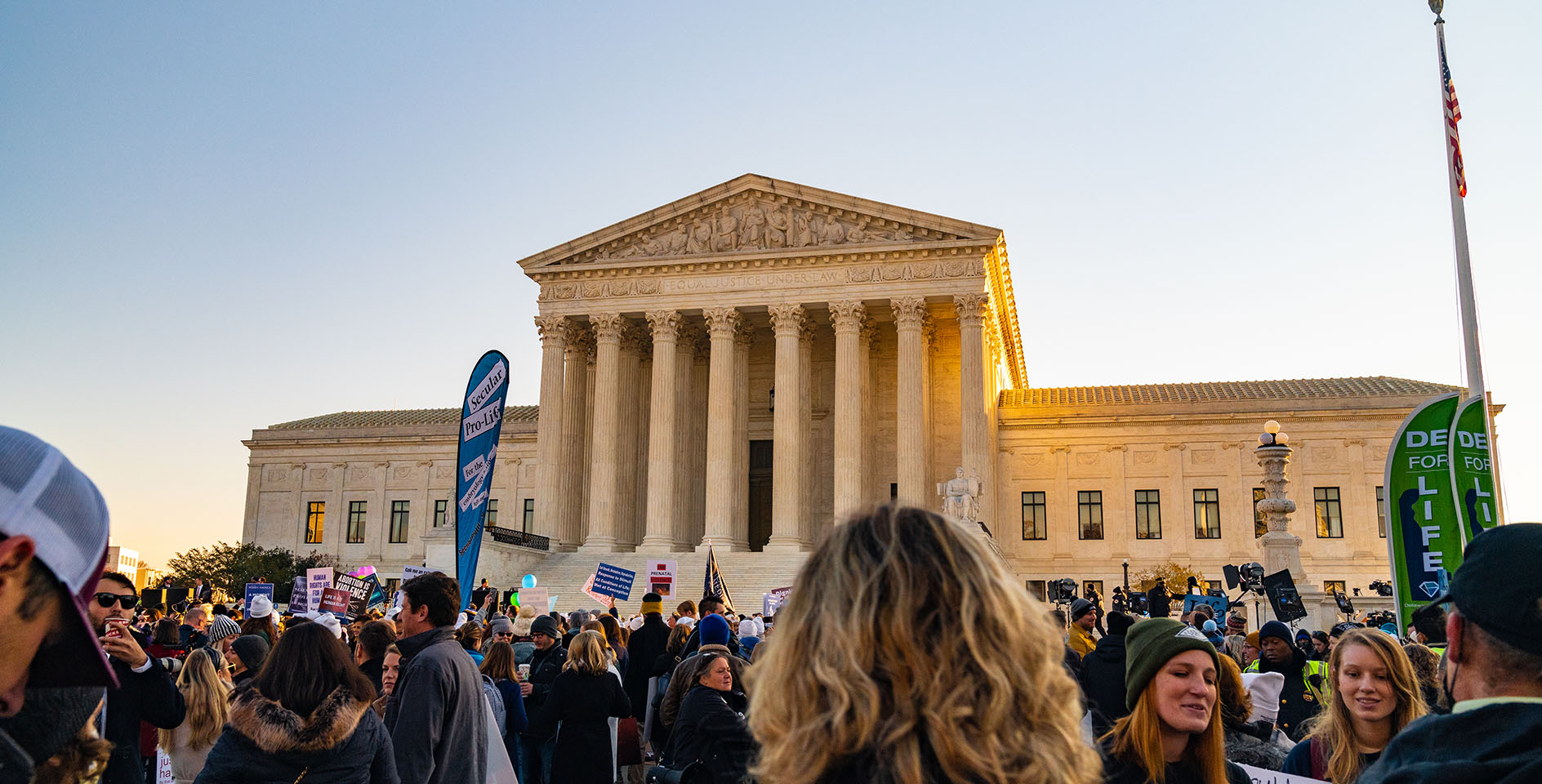Many people have heralded the Supreme Court’s recent same-sex marriage decision as an historic win for equality and freedom. While that claim may be popular in the cultural conversation, the decision itself is a radical departure from the Supreme Court’s usual legal analysis. And the underlying reasoning may affect much more than marriage. This ruling may guide the Court to strike down Texas’s new abortion restrictions, effectively keeping open dozens of abortion clinics that would have otherwise been shut down.
How would this happen? On June 29, 2015, the Supreme Court ordered Texas to halt implementation of its new abortion laws until the Supreme Court could hear the case during the next term. This means that the Court will likely issue a ruling on the constitutionality of the Texas law around this time next year. And the reasoning used in the same-sex marriage opinion could affect the future abortion decision.
A right to abortion, like the right to same-sex marriage, is not explicitly stated in the Constitution. That’s why Roe v. Wade and the same-sex marriage decision were both so controversial: the Supreme Court found these rights imbedded within the Constitution’s “liberty” protections. And with the Court’s radical departure in the same-sex marriage case, the standard for finding new rights within the Constitution has shifted in favor of ambiguous notions like “dignity” and “autonomy.” This could present unique challenges for the pro-life movement.
What about the same-sex marriage case poses a threat to the Texas abortion law? First, both cases are analyzed under the 14th Amendment’s “Due Process Clause,” which prohibits states from depriving any person of “life, liberty, or property, without due process of law.” Normally, those protected liberties are spelled out in the Bill of Rights. In the latter half of the 20th Century, however, the Court began to recognize rights that extend to “personal choices central to individual dignity and autonomy, including intimate choices that define personal identity and belief.” According to Justice Kennedy, it is the Supreme Court’s duty to identify and protect those rights. It requires Justices, he said, “to exercise reasoned judgment in identifying interests of the person so fundamental that the State must accord them its respect.” The Constitution, further, protects “the right of all persons to enjoy liberty as [they] learn from its meaning.” As time marches on, new rights and liberties are addressed as the Court gains “new insight” into the nature of liberty. Such is the framework for the Supreme Court’s current analysis of what “liberty” is protected under the Constitution. This is troubling for many reasons, not least of which is that the concept of liberty is left to the unelected Justices, using their “new insight” to define what levels of dignity and autonomy are protected by the Constitution during any given generation.
But what does this mean for Texas’s abortion law? It depends. If the Court chooses to adopt the “dignity” approach, it could have disastrous effects for many unborn children. Justice Kennedy is a pioneer of the dignity analysis, and personal reproductive choices are often at the heart of many of his examples of autonomy and dignity protected by the Constitution. And because Texas’s law places certain restrictions on a woman’s ability to exercise that “autonomy,” the law will be left up to the “reasoned judgment” of a majority of the Court. And because the Court has to define the rights associated with a person’s dignity and autonomy, it must also set the boundaries of those rights. If the Court engages in the same kind of ad hoc analysis of progressive notions of dignity and personal autonomy, it may well strike down the Texas law as impermissibly intrusive on a woman’s personal autonomy.
The prevailing legal standard for abortion cases is that abortion restrictions may not “unduly burden” a woman’s “right” to privacy with regard to her reproductive choices. This is dangerous territory given the recent Supreme Court decision on same-sex marriage. One of the reasons that Justice Kennedy cited for striking down same-sex marriage bans was that such bans impose a “stigma” upon the dignity of same-sex couples. In relation to abortion culture, stigma is a loaded term. Campaigns seeking to remove the stigma from all abortion practices are commonplace in the media. If the Court latches on to this notion of stigma surrounding abortion, it may find that the Texas law’s restrictions add impermissible “stigma” to a woman’s autonomous choices.
Further, the leading Supreme Court abortion case (Planned Parenthood v. Casey) provides only mixed guidance for the current Court. Some of the legal reasoning in that opinion anticipates the reasoning in the same-sex marriage case. Take this precept, for example: “At the heart of liberty is the right to define one’s own concept of existence, of meaning, of the universe, and of the mystery of human life.” This was Justice Sandra Day O’Connor’s attempt to define liberty in relation to a woman’s ability to have an abortion. In fact, the Court’s role of exercising its “reasoned judgment” first appeared in Planned Parenthood v. Casey. So if the Court uses the reasoning in the same-sex marriage case to extend Planned Parenthood’s definition of liberty, the Texas abortion restrictions may be in trouble.
Yet the other side of the Planned Parenthood coin is that it protects a woman’s ability to have an abortion only up to the point of viability. If the Court opts to take a more scientific approach to its reasoning, then the Texas law may survive. This is because advances in pre-natal medical care have made it possible for increasingly younger babies to survive outside of the womb. It is not unheard of for children younger than 24-weeks gestation to survive premature birth. And the principle that life begins at conception is increasingly gaining consensus in the scientific community. All of these factors may counsel the Court to uphold the Texas law, as it more accurately reflects scientific data on pre-natal medicine.
Until there is an actual decision, we won’t know how the Supreme Court will rule on the Texas abortion law (and, in fact, the Court must still decide even to take the case). But the amorphous, vaguely-philosophical precedent set by the same-sex marriage decision does not bode well for the future of self-government and societal restraint. Nor does it bode well for unborn children in Texas. If the Supreme Court embarks on a path of self-reflection and reasoned judgment—instead of Constitutional analysis—we may find the lives of thousands of unborn children hanging in the hands of one Court.
The good news, however, is that we worship a sovereign God who ordains even that the grass grows and withers away (Matt. 6:30). The universe is upheld each second by the word of his power (Heb. 1:3). Nothing happens outside of his power and will. Yet our actions—as individuals and as a nation—have consequences. We should pray for our nation’s highest court. Pray that sound reason would prevail, and that we as a country would recover the rule of law, which provides the most protections for life, liberty, and property. And pray for all of our authorities, that we may be able to lead peaceful and quiet lives of obedience to God (1 Tim. 2:1–4).
In the end, we as Christians know that liberty and dignity are not something that we define for ourselves. We all—unborn babies included—carry inherent dignity as image bearers of the living God. And true liberty only comes when we have been freed from slavery to sin through Jesus Christ. Therefore, the most urgent prayer for legal and cultural renewal is that the hearts of men would be turned to Jesus Christ for the forgiveness of sins and breath of new life. Apart from this, we will not experience the lasting dignity and liberty that we seek.










